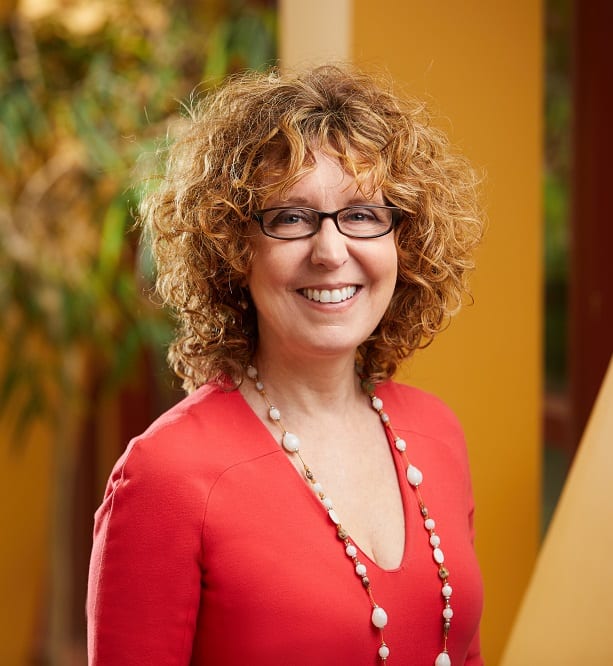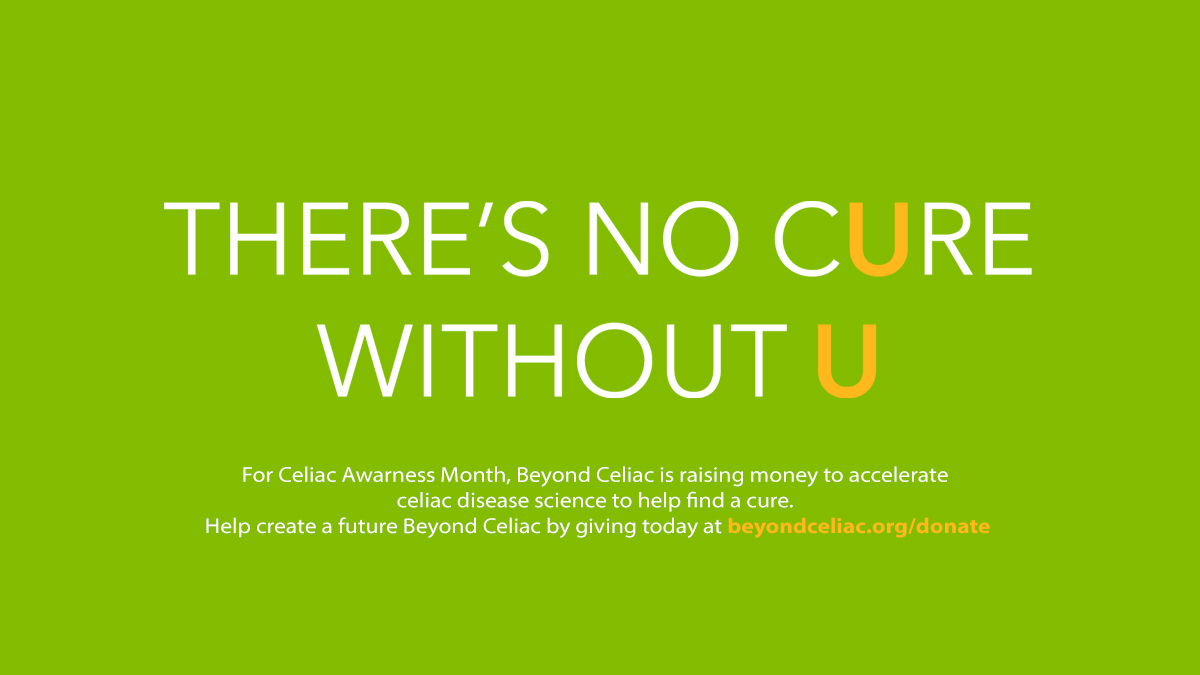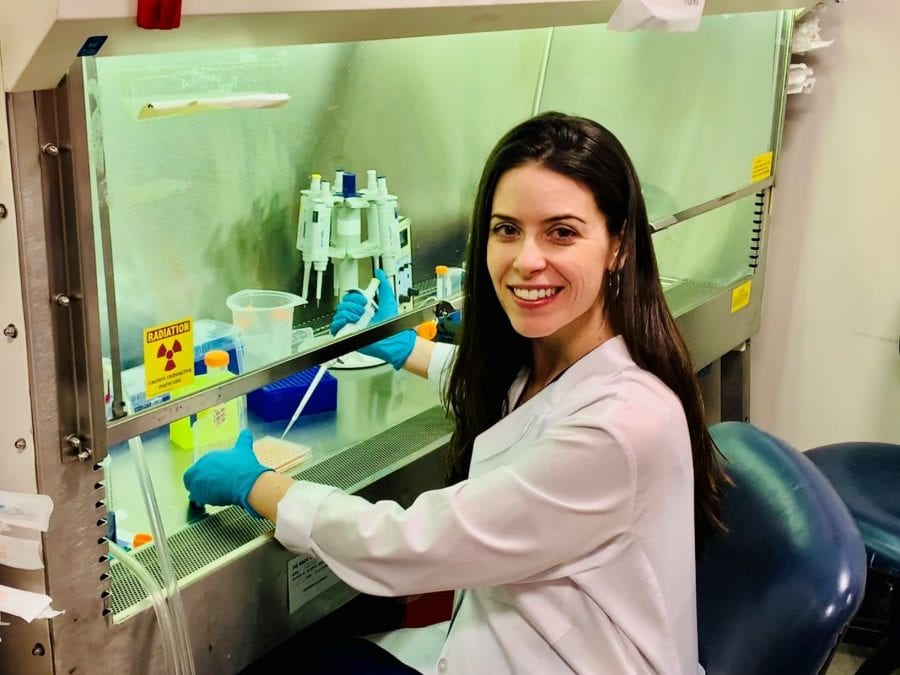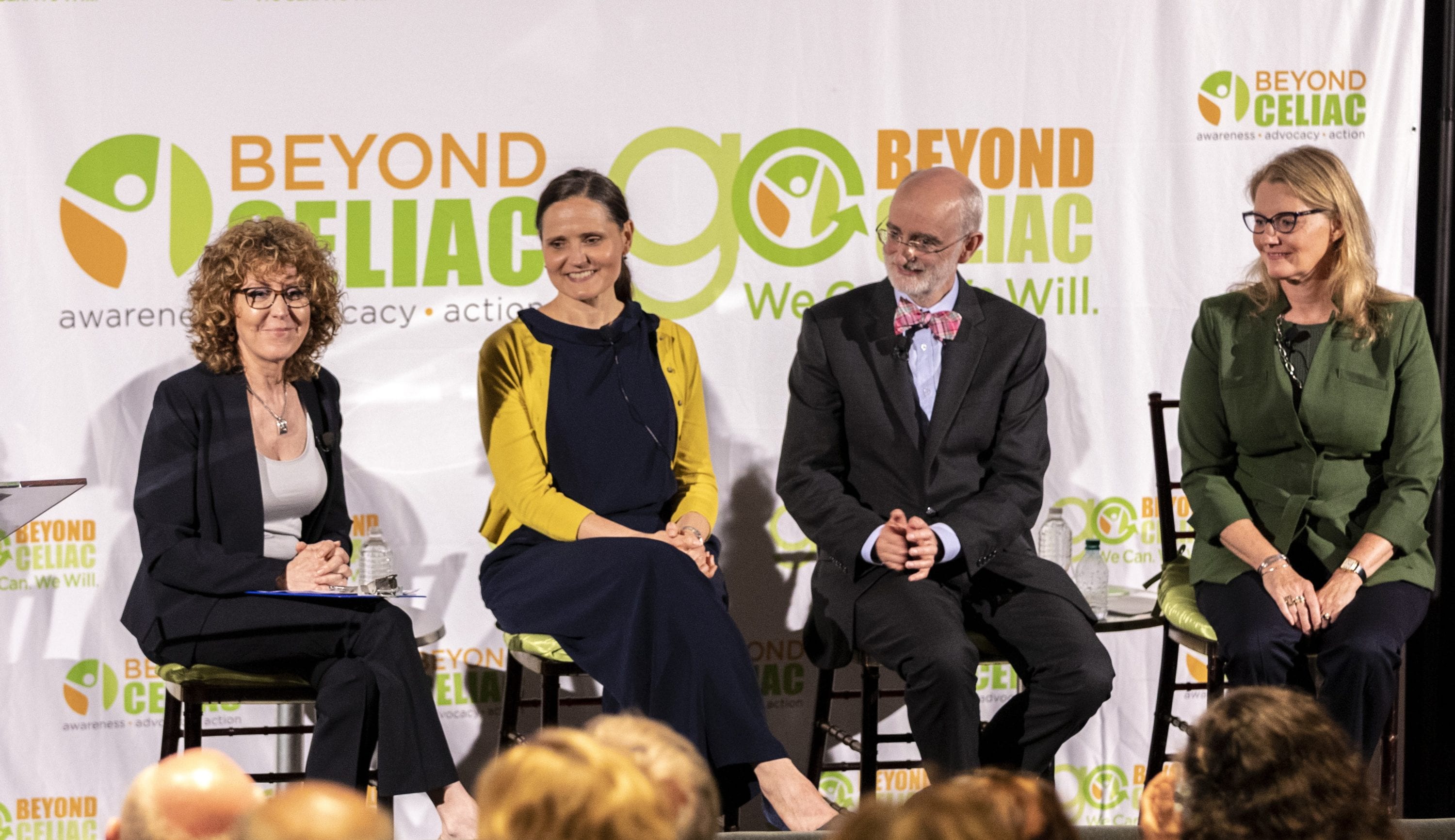
Note from Alice:
 Dear Beyond Celiac Community,
Dear Beyond Celiac Community,
Celiac disease.
It’s serious!
I’m not sick!
I need accommodations!
I do not have a disability!
I’m fine!
I got glutened and spent the night vomiting (or weekend with a migraine or fill in the blank)!
I’ve got it under control! I don’t mind not eating out or having to take my own food. It’s my new normal.
I’m so upset that I can’t just live my life free from the worry of gluten exposure and the stigma of having to live this way.
If you have celiac disease, you may have said all of these things at one time. It’s what we at Beyond Celiac have started calling the Celiac Disease Paradox. Healthy but not always. Well-adjusted but struggling sometimes. Empowered yet dependent on others whom we have to trust to keep our food safe.
Those of us with celiac disease have to think about everything we put in our mouths from the time we wake up to the time we go to sleep. For me, as CEO of Beyond Celiac, despite the fact that I am extremely careful, I still get glutened. Just this week I attended an event and did not trust any of the food, so I didn’t eat. I hear stories like this from people in our community all the time. We are never free of the worry and vigilance.
What’s more, I will never be free from my history of loss due to celiac disease – the lost years, the loss of multiple pregnancies, the loss of my daughter Emily to a full-term stillbirth. All because of celiac disease. Do I like to think of myself as suffering? Certainly not. But we cannot deny that celiac disease causes suffering. In fact, studies show the perceived burden of the disease by those who have it is second only to the burden reported by those who have end-stage renal disease.
Most people don’t know the challenges of living with celiac disease and struggle to understand how dangerous gluten is to our community, even if they know someone who has celiac disease. We can’t just settle and put up with the status quo. We need more. We need better. We need to be able to eat without fear.
As we discussed at the recent 3rd Annual Beyond Celiac Symposium, the research community is poised for some big break-throughs that will be real game-changers. And Beyond Celiac as the trusted voice of the community is making sure that our collective voice is being heard. You can help create a future that will be better for us, our kids and our grandkids. I urge you to sign up for our patient registry and platform, Go Beyond Celiac. We will be rolling out a first-of-its kind app later this month that will make it easy and enjoyable to tell your journey about celiac disease before, during and after diagnosis. Please join. . It’s time for us to eat without fear and live life to the fullest. Researchers can’t find the right solutions if they don’t know our real challenges.
To Living Life Beyond Celiac,
Alice

Note from Marie Robert, MD, Chief Scientific Officer

It’s been an especially busy time for the Beyond Celiac science department in recent weeks. We laid out our new science plan, which will drive our work in achieving the Beyond Celiac mission of accelerating new treatments and, ultimately, finding a cure for celiac disease.
You may have tuned into our third annual Beyond Celiac Research Symposium via the webcast, or perhaps you even attended the symposium on the University of Pennsylvania campus. If you weren’t able to do either, you can still watch the symposium webcast or read about it on our research news feed.
The main message that came out of the symposium is that the patient voice, your voice, really does matter. At times you may feel the celiac disease research world is far removed from your own world. The experts on our panel emphasized how critical you, the patient or caregiver, are if we ever want to get past the point where a new treatment is that elusive ‘five years away’.
While you may feel scientists and pharmaceutical companies are not taking what you want in a treatment into account when they conceive of a drug, or design a clinical trial to test it, the opposite is true. In fact, researchers and drug companies know they will not get approval for a treatment from the U.S. Food and Drug Administration unless they can demonstrate patients not only need it, but want it.
The FDA will evaluate whether each of the drugs currently in the celiac disease drug pipeline has enough promise to help enough people, Joe Murray, MD, of the Mayo Clinic, said at the symposium. Based on a long career both treating patients and doing research, Murray said he is convinced there is “substantial need.”
A number of drugs to treat celiac disease are moving through the phases of clinical trial that Murray outlined at the symposium. They work in a variety of ways at different points in the process triggered by gluten when someone has celiac disease.
Linda Deal, MS, whose role at the pharmaceutical company Pfizer is to work on patient centered outcome assessments, said the patients’ voice is being “legitimized and listened to” by drug companies, in part because the 21rst Century Cures Act of 2016 gives patients a greater say in clinical trials.
Those who have celiac disease are making their desire for a new treatment clear. When the Chicago Celiac Disease Center surveyed about 200 celiac disease patients, 90 percent said they want a treatment that will allow them to live without the fear of cross contact in their gluten-free diet, said Sonia Kupfer, MD, a gastroenterologist at the Chicago center.
But how do you share what you want and need with a researcher working on a clinical trial? You can volunteer to be a study participant by responding when Beyond Celiac puts out the word that a study is looking for patients. The National Institutes of Health maintain a searchable database of clinical trials, including those related to celiac disease, and Beyond Celiac has trial finder, both of which you can find on our website.
Deal advised that if you do want to participate, you should make sure you have a full understanding of how the trial would work and what your commitment would be. You can also sign up for Go Beyond Celiac, our patient registry and platform. When you do, you’ll help create an accurate picture of the celiac disease journey and experience by answering questions about what it’s like to have celiac disease.
Additionally, you can support the accelerated efforts of Beyond Celiac to spur research into new treatments. In 2018, we joined with the Society for the Study of Celiac Disease to award a $150,000 two-year grant. The grant went to a scientist studying the impact of celiac disease on the health and quality of life of children diagnosed with celiac disease through an existing mass screening program.
Currently, our newly formed Scientific Advisory Council, a multi-disciplinary group of leaders in the field of research, is reviewing applications for two additional grants that will be awarded this month. Over the next three years, these grants will total an ambitious $454,000 in Beyond Celiac funding for research.
The Beyond Celiac Science Plan to accelerate therapies, which I put together after becoming the first- ever chief scientific officer at a celiac disease advocacy group, guides the decisions Beyond Celiac makes in its quest to make new treatments a reality. Go Beyond Celiac, my position as CSO, formation of the scientific advisory council and our focus on funding research are key components of the science plan.
But we can’t make it over the hurdles to a new treatment without your voice, your participation and your support. I, and everyone at Beyond Celiac, hope you will join us in making life better for all celiac disease patients.
Sincerely,
Marie Robert, MD
Beyond Celiac Chief Scientific Officer
Advertisement

Celiac Awareness Month 2019 Recap:

Thank U all for an amazing Celiac Awareness Month!
Over the last 30 days we’ve posted and shared information and stories about the everyday reality of living with celiac disease. We were part of a celiac awareness campaign called KnowCeliac.com, that launched a website and accompanying videos to bring more attention from outside the celiac community. And on May 30th, we held our 3rd Annual Celiac Disease Research Symposium, bringing together celiac disease experts and guests from all over the country and world!
But we couldn’t have done it without U. So Thank U for an awesome Celiac Awareness Month, and remember, there’s #NoCureWithoutU
Visit our Official Celiac Awareness Month page for materials to continue to spread the word about celiac disease!
Gluten-Free Cooking with Oonagh
 Mango Cream Pie
Mango Cream Pie
A gluten-free version of a classic recipe that makes a delicious Mother’s Day treat!
GET THE RECIPE
About Chef Oonagh Williams
 Chef Oonagh Williams holds a culinary arts degree and spends her time cooking, writing, speaking, and educating the public on gluten-free and allergy-free diets. She herself has celiac disease along with other food allergies. When not writing or speaking nationally, she teaches cooking classes, hosts dinner parties, and offers one-on-one help. Buy her Delicious Gluten-Free Cooking e-book; like her Facebook page, Gluten-Free Cooking with Oonagh, where she posts recipes, links to her appearances, and gluten-free products she’s discovered; and connect with her for help in following a food allergy diet.
Chef Oonagh Williams holds a culinary arts degree and spends her time cooking, writing, speaking, and educating the public on gluten-free and allergy-free diets. She herself has celiac disease along with other food allergies. When not writing or speaking nationally, she teaches cooking classes, hosts dinner parties, and offers one-on-one help. Buy her Delicious Gluten-Free Cooking e-book; like her Facebook page, Gluten-Free Cooking with Oonagh, where she posts recipes, links to her appearances, and gluten-free products she’s discovered; and connect with her for help in following a food allergy diet.
Advertisement

Mini Gut May Help Unlock Celiac Disease Mysteries
 A three-dimensional “mini gut” grown from stem cells in tissue obtained from the biopsies of patients may help researchers unlock some of the mysteries of celiac disease.This “very simple model” has enabled researchers to study how multiple factors modify the function of the intestinal cells in regard to gluten. READ MORE
A three-dimensional “mini gut” grown from stem cells in tissue obtained from the biopsies of patients may help researchers unlock some of the mysteries of celiac disease.This “very simple model” has enabled researchers to study how multiple factors modify the function of the intestinal cells in regard to gluten. READ MORE
DDW Research Highlights Celiac Disease Symptom Disconnect
 Research presented at Digestive Disease Week in San Diego this week painted a complicated picture of celiac disease, including evidence that patients are frequently exposed to gluten, especially on the weekends, many have symptoms every day and symptoms are not a good indicator of whether someone has ongoing intestinal damage. READ MORE
Research presented at Digestive Disease Week in San Diego this week painted a complicated picture of celiac disease, including evidence that patients are frequently exposed to gluten, especially on the weekends, many have symptoms every day and symptoms are not a good indicator of whether someone has ongoing intestinal damage. READ MORE
Alice’s Interview in Philly Mag

Philly Mag sat down with our CEO Alice Bast and asked questions about her personal celiac experience, the myths that surround the disease, and what it’s really like to live with celiac disease. Thank you, Philly Mag, for asking great questions and spreading awareness for a disease that doesn’t get enough attention.
READ MORE in Philly Mag.
Photograph courtesy of Getty Images
Step Beyond Celiac Philly 5K THIS SUNDAY AT THE ZOO!
 Join us for our inaugural Step Beyond Celiac Philly 5K at the Philadelphia Zoo THIS SUNDAY June 9th! The course will take participants throughout the zoo, a truly unique experience. Step Beyond Celiac 5Ks raise funds to support Beyond Celiac research efforts and are a fun time for the entire family. While online registration has closed, participants can still register THIS SUNDAY beginning at 7AM at the zoo. READ MORE ABOUT THE PHILLY 5K Not in the Philadelphia area? REGISTER FOR THE VIRTUAL WALK
Join us for our inaugural Step Beyond Celiac Philly 5K at the Philadelphia Zoo THIS SUNDAY June 9th! The course will take participants throughout the zoo, a truly unique experience. Step Beyond Celiac 5Ks raise funds to support Beyond Celiac research efforts and are a fun time for the entire family. While online registration has closed, participants can still register THIS SUNDAY beginning at 7AM at the zoo. READ MORE ABOUT THE PHILLY 5K Not in the Philadelphia area? REGISTER FOR THE VIRTUAL WALK
3rd Annual Celiac Disease Research Symposium Recap

On May 30, 2019, Beyond Celiac hosted its 3rd Annual Celiac Disease Research Symposium at the University of Pennsylvania. Despite the rain, there was still an excellent turnout, and at the end of the night all of the gluten-free desserts were gone! For the full video of the event, please click here. Additionally, many of the questions and answers were live-tweeted at our twitter feed using the hashtag #CeliacResearch. For a detailed write-up of the event, click here.
Our Latest Facebook Live Video
 Claire and Jackson discussed upcoming celiac disease-related events and how you can get involved and have fun! WATCH THE RECORDING
Claire and Jackson discussed upcoming celiac disease-related events and how you can get involved and have fun! WATCH THE RECORDING
Start a Facebook Fundraiser for Beyond Celiac
 Happy birthmonth to all our June-born followers! When your big day rolls around, consider “donating” it to Beyond Celiac so that we can help fund new research scientists in the celiac disease field! START YOUR FACEBOOK FUNDRAISER
Happy birthmonth to all our June-born followers! When your big day rolls around, consider “donating” it to Beyond Celiac so that we can help fund new research scientists in the celiac disease field! START YOUR FACEBOOK FUNDRAISER

 Dear Beyond Celiac Community,
Dear Beyond Celiac Community,



 Mango Cream Pie
Mango Cream Pie Chef Oonagh Williams holds a culinary arts degree and spends her time cooking, writing, speaking, and educating the public on gluten-free and allergy-free diets. She herself has celiac disease along with other food allergies. When not writing or speaking nationally, she teaches cooking classes, hosts dinner parties, and offers one-on-one help. Buy her
Chef Oonagh Williams holds a culinary arts degree and spends her time cooking, writing, speaking, and educating the public on gluten-free and allergy-free diets. She herself has celiac disease along with other food allergies. When not writing or speaking nationally, she teaches cooking classes, hosts dinner parties, and offers one-on-one help. Buy her
 A three-dimensional “mini gut” grown from stem cells in tissue obtained from the biopsies of patients may help researchers unlock some of the mysteries of celiac disease.This “very simple model” has enabled researchers to study how multiple factors modify the function of the intestinal cells in regard to gluten.
A three-dimensional “mini gut” grown from stem cells in tissue obtained from the biopsies of patients may help researchers unlock some of the mysteries of celiac disease.This “very simple model” has enabled researchers to study how multiple factors modify the function of the intestinal cells in regard to gluten.  Research presented at Digestive Disease Week in San Diego this week painted a complicated picture of celiac disease, including evidence that patients are frequently exposed to gluten, especially on the weekends, many have symptoms every day and symptoms are not a good indicator of whether someone has ongoing intestinal damage.
Research presented at Digestive Disease Week in San Diego this week painted a complicated picture of celiac disease, including evidence that patients are frequently exposed to gluten, especially on the weekends, many have symptoms every day and symptoms are not a good indicator of whether someone has ongoing intestinal damage. 
 Join us for our inaugural Step Beyond Celiac Philly 5K at the Philadelphia Zoo THIS SUNDAY June 9th! The course will take participants throughout the zoo, a truly unique experience.
Join us for our inaugural Step Beyond Celiac Philly 5K at the Philadelphia Zoo THIS SUNDAY June 9th! The course will take participants throughout the zoo, a truly unique experience. 
 Claire and Jackson discussed upcoming celiac disease-related events and how you can get involved and have fun!
Claire and Jackson discussed upcoming celiac disease-related events and how you can get involved and have fun!  Happy birthmonth to all our June-born followers! When your big day rolls around, consider “donating” it to Beyond Celiac so that we can help fund new research scientists in the celiac disease field!
Happy birthmonth to all our June-born followers! When your big day rolls around, consider “donating” it to Beyond Celiac so that we can help fund new research scientists in the celiac disease field! 

